Abstract
According to cultural materialism, cultural practices result from the materialistic outcomes of those practices, not from sociobiological, mentalistic, or mystical predispositions (e.g., Hindus worship cows because, in the long run, that worship results in more food, not less food). However, according to behavior analysis, such materialistic outcomes do not reinforce or punish the cultural practices, because such outcomes are too delayed, too improbable, or individually too small to directly reinforce or punish the cultural practices (e.g., the food increase is too delayed to reinforce the cow worship). Therefore, the molar, materialistic contingencies need the support of molecular, behavioral contingencies. And according to the present theory of rule-governed behavior, the statement of rules describing those molar, materialistic contingencies can establish the needed molecular contingencies. Given the proper behavioral history, such rule statements combine with noncompliance to produce a learned aversive condition (often labeled fear, anxiety, or guilt). The termination of this aversive condition reinforces compliance, just as its presentation punishes noncompliance (e.g., the termination of guilt reinforces the tending to a sick cow). In addition, supernatural rules often supplement these materialistic rules. Furthermore, the production of both materialistic and supernatural rules needs cultural designers who understand the molar, materialistic contingencies.
Keywords: rule-governed behavior, behavioral anthropology, radical behaviorism, cultural materialism
Full text
PDF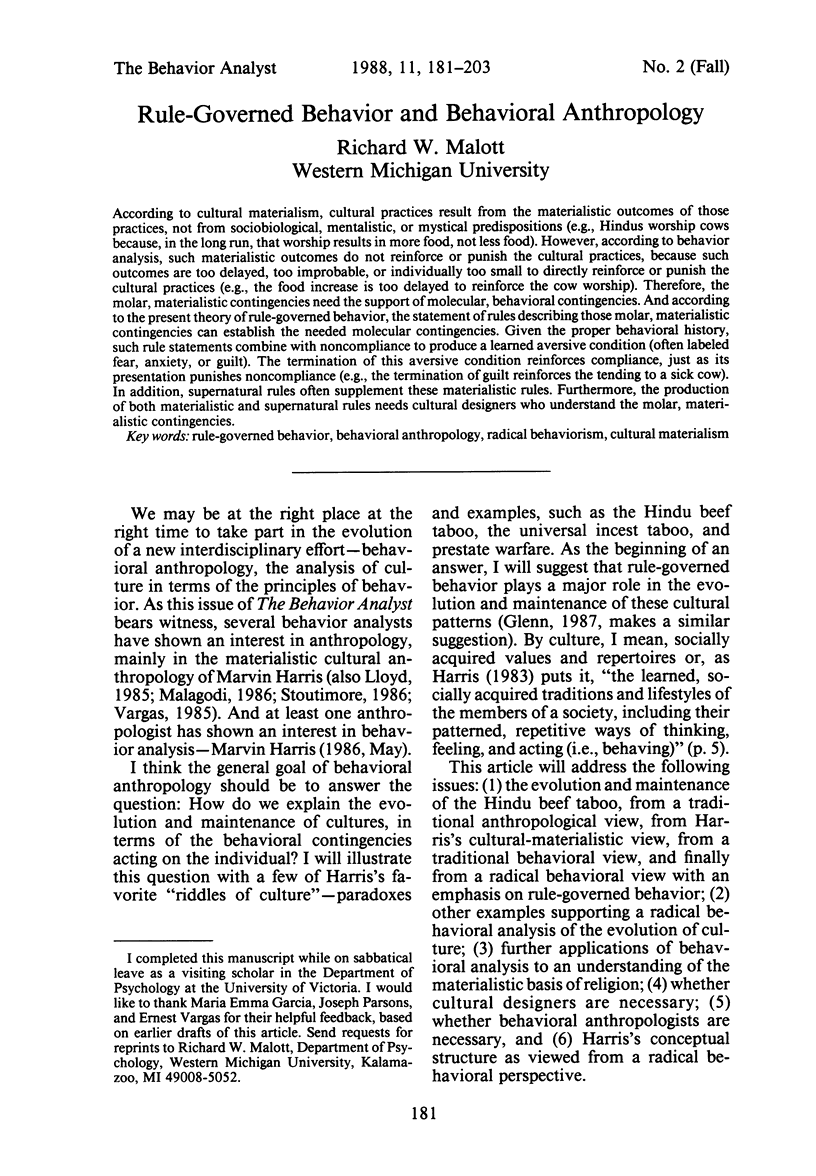
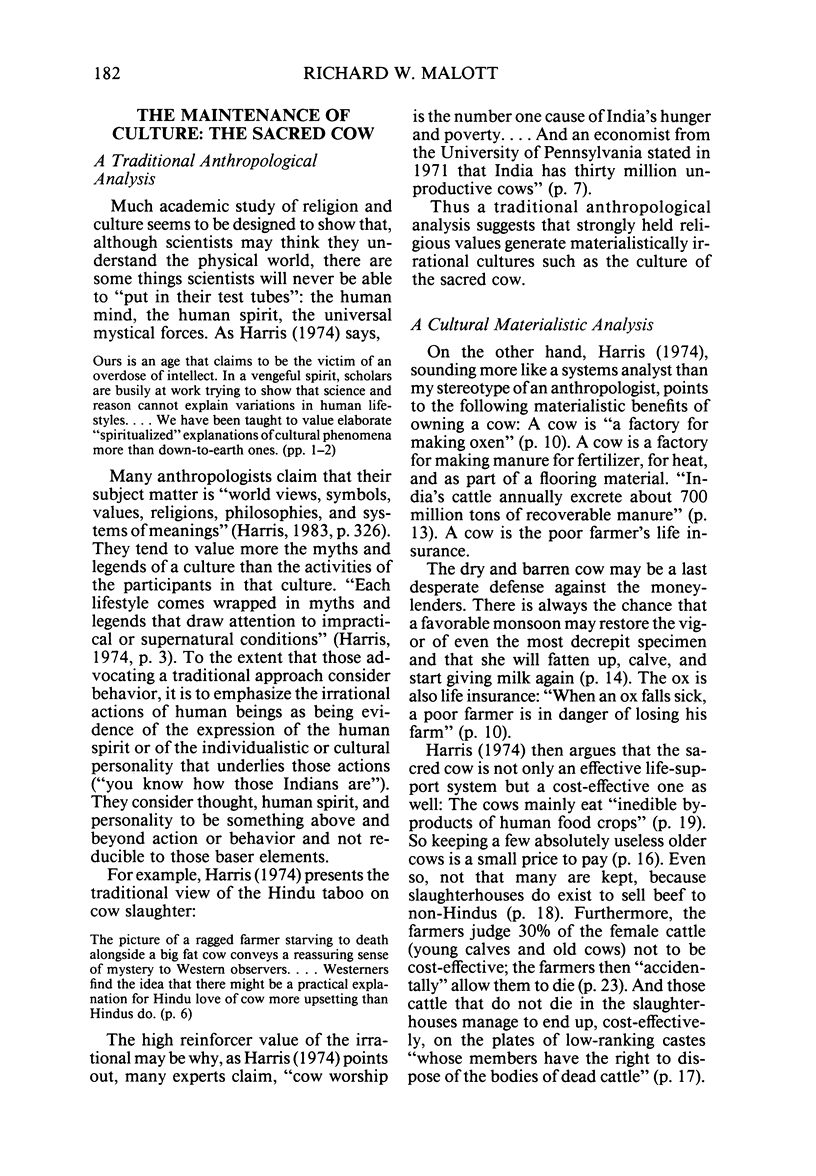
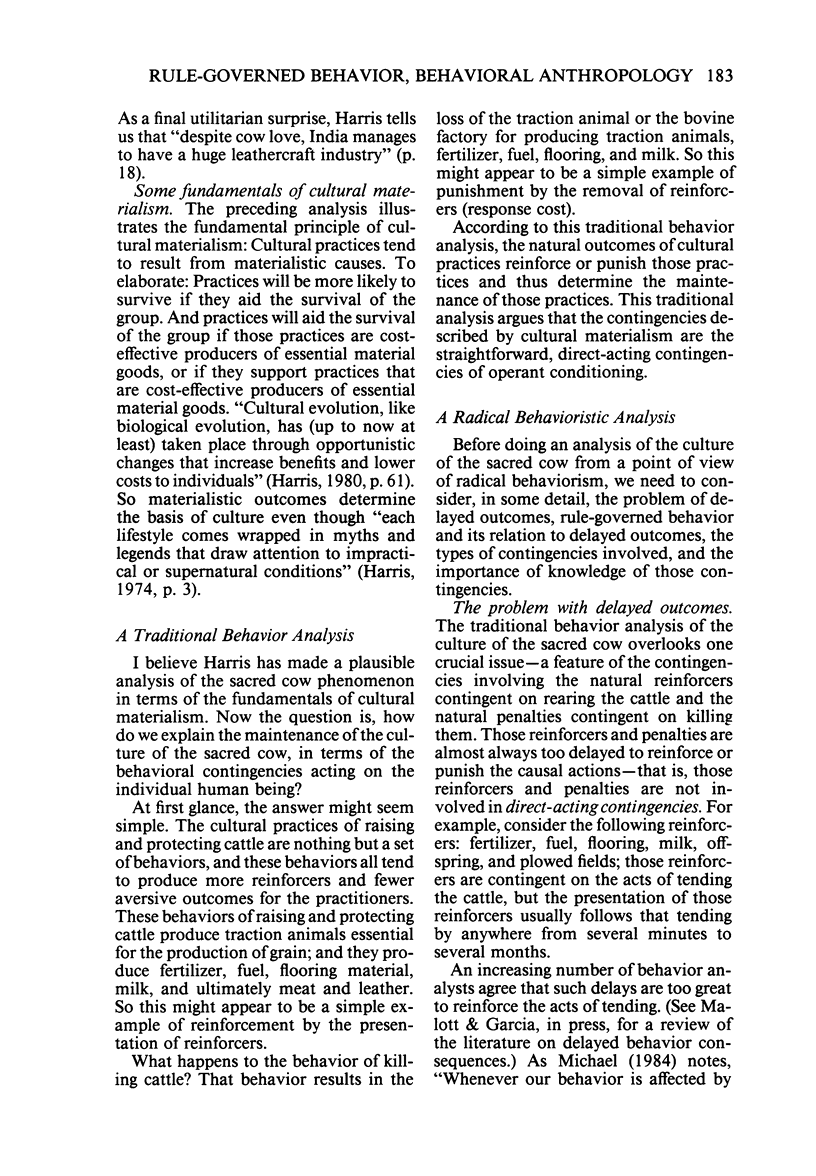
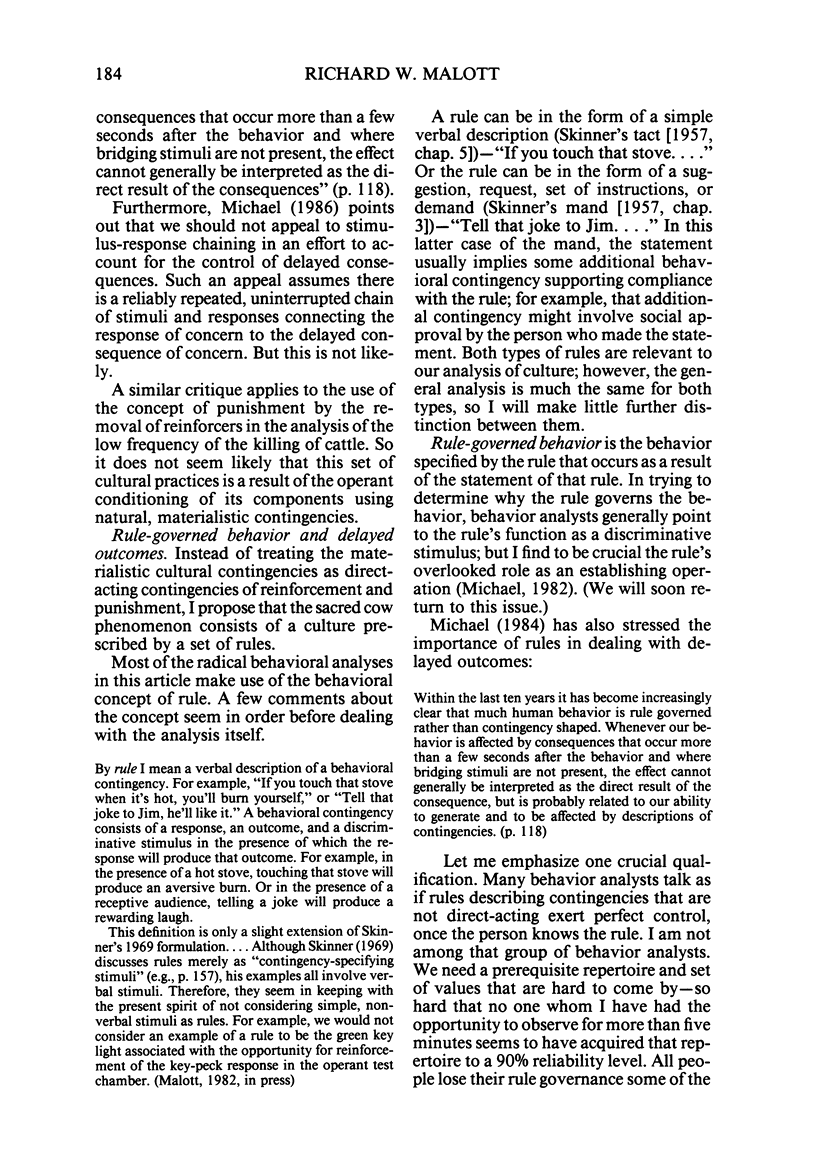
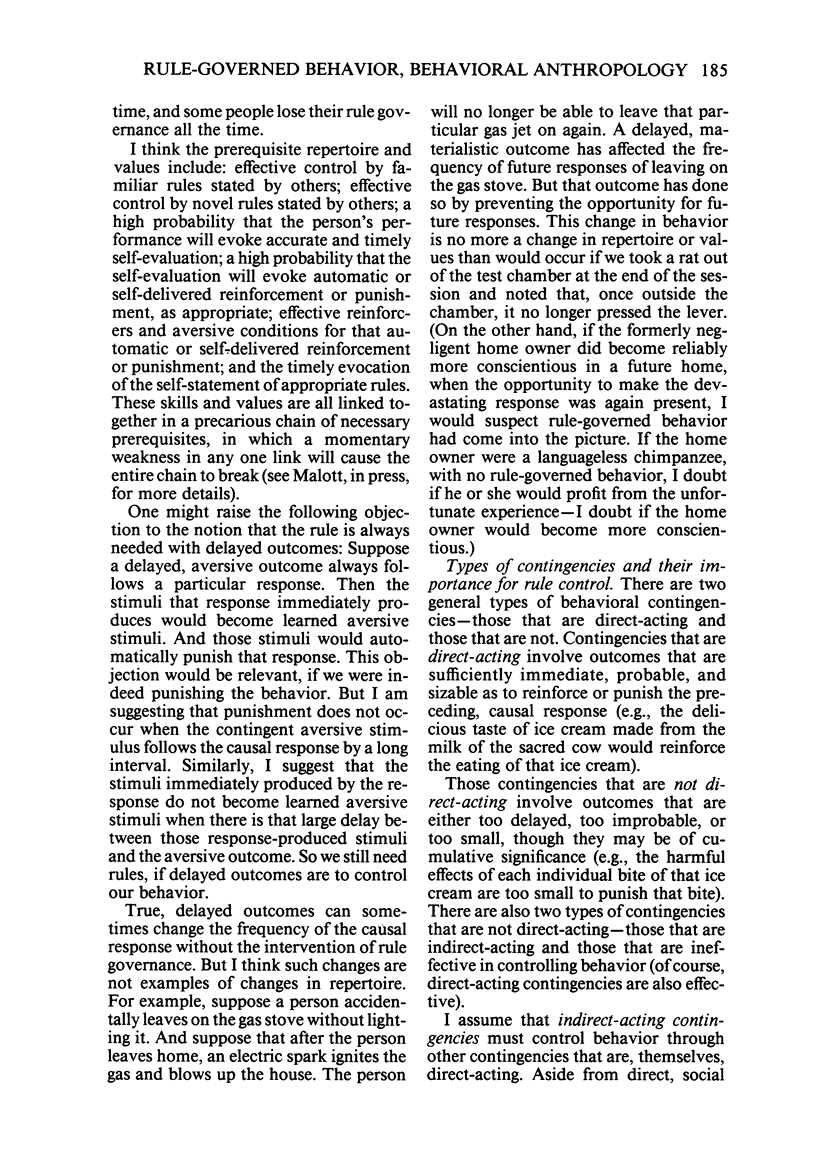
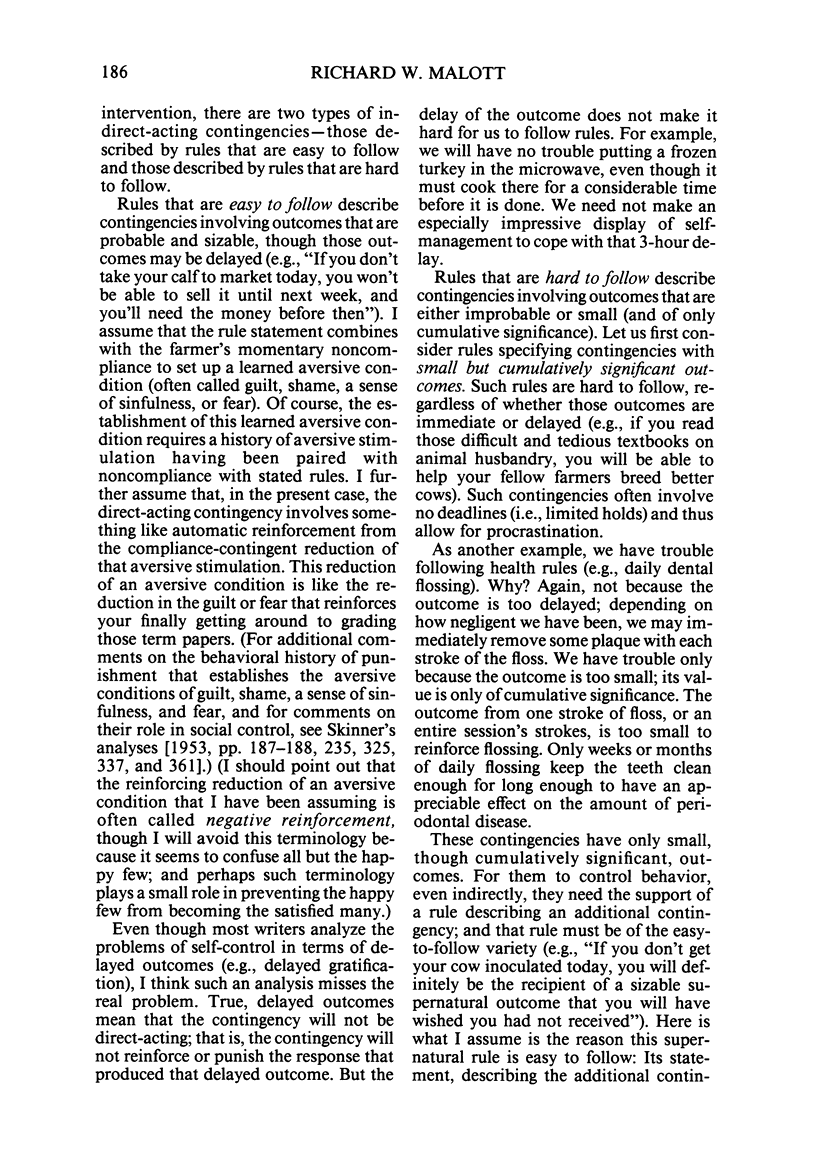
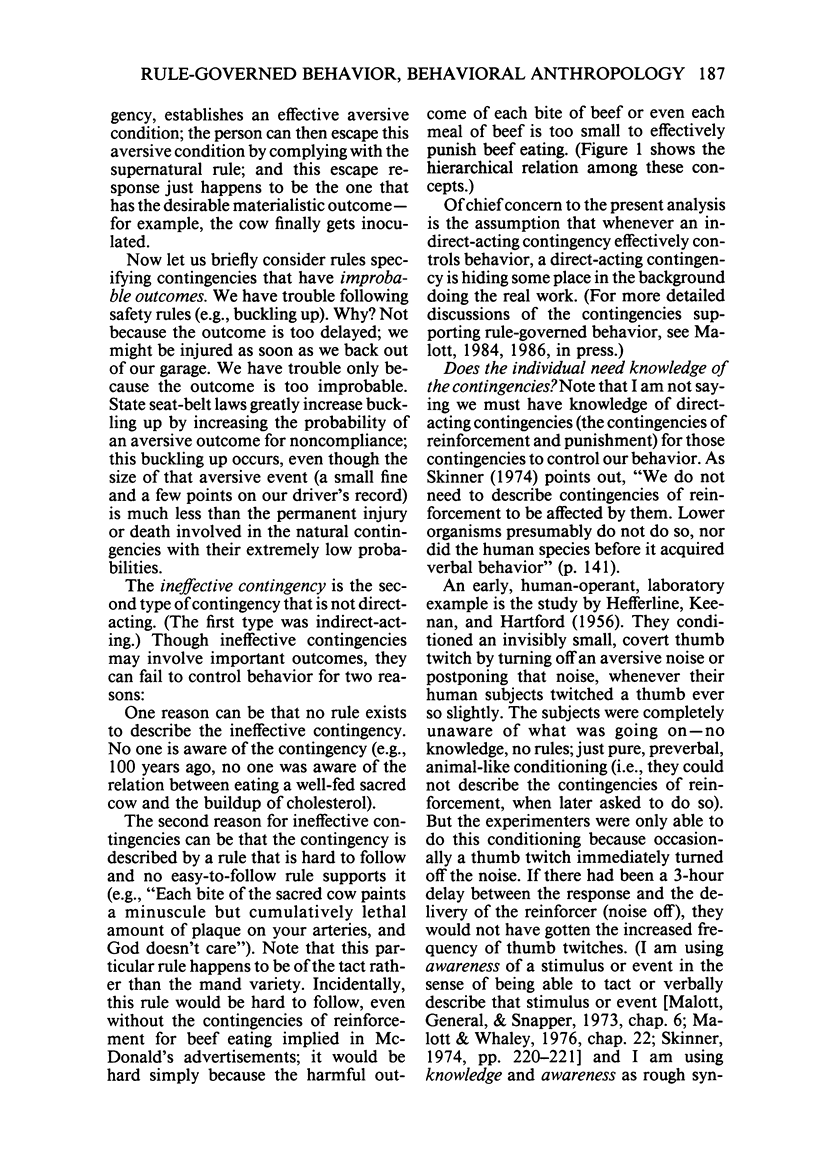
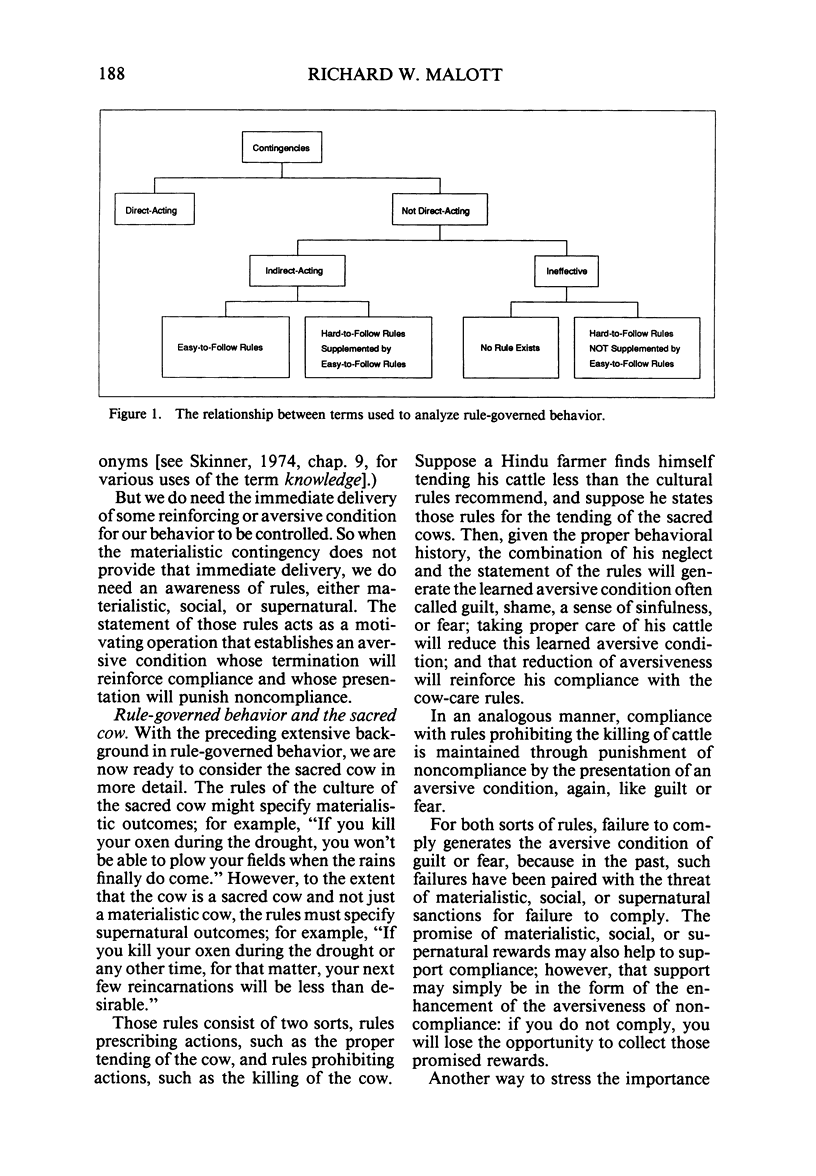
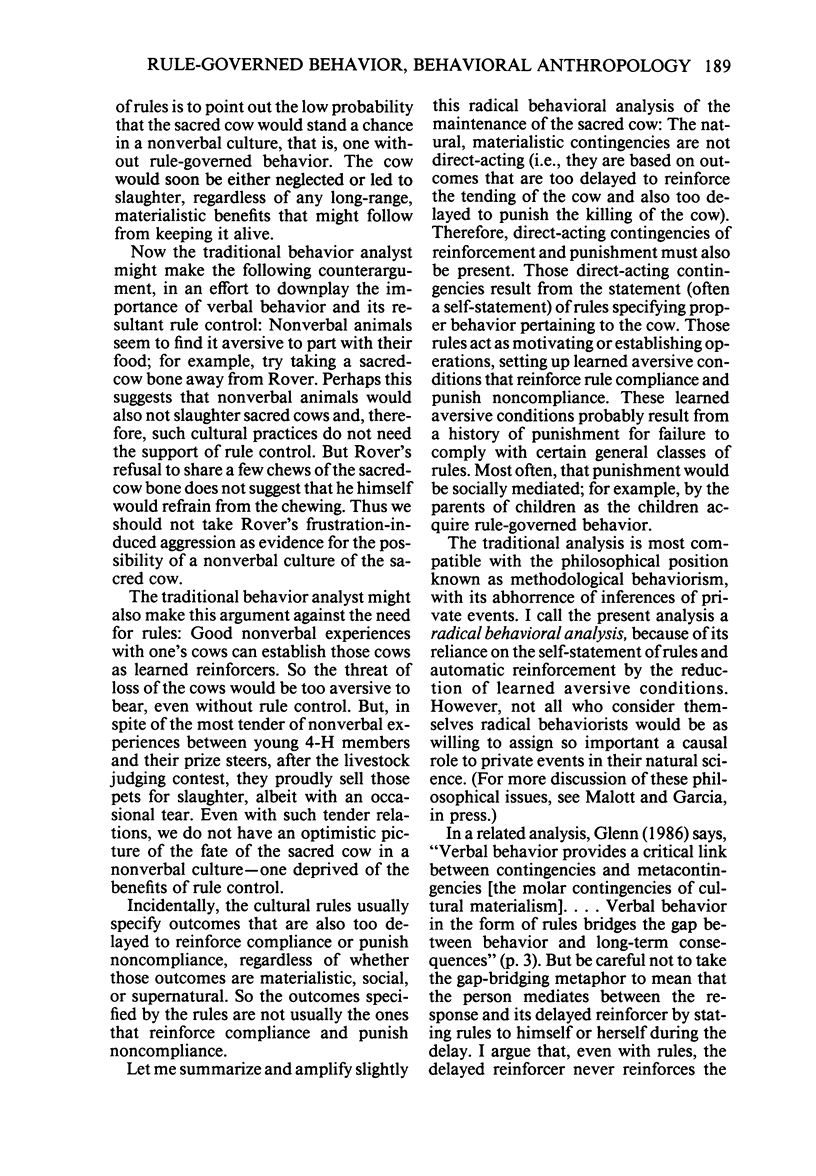
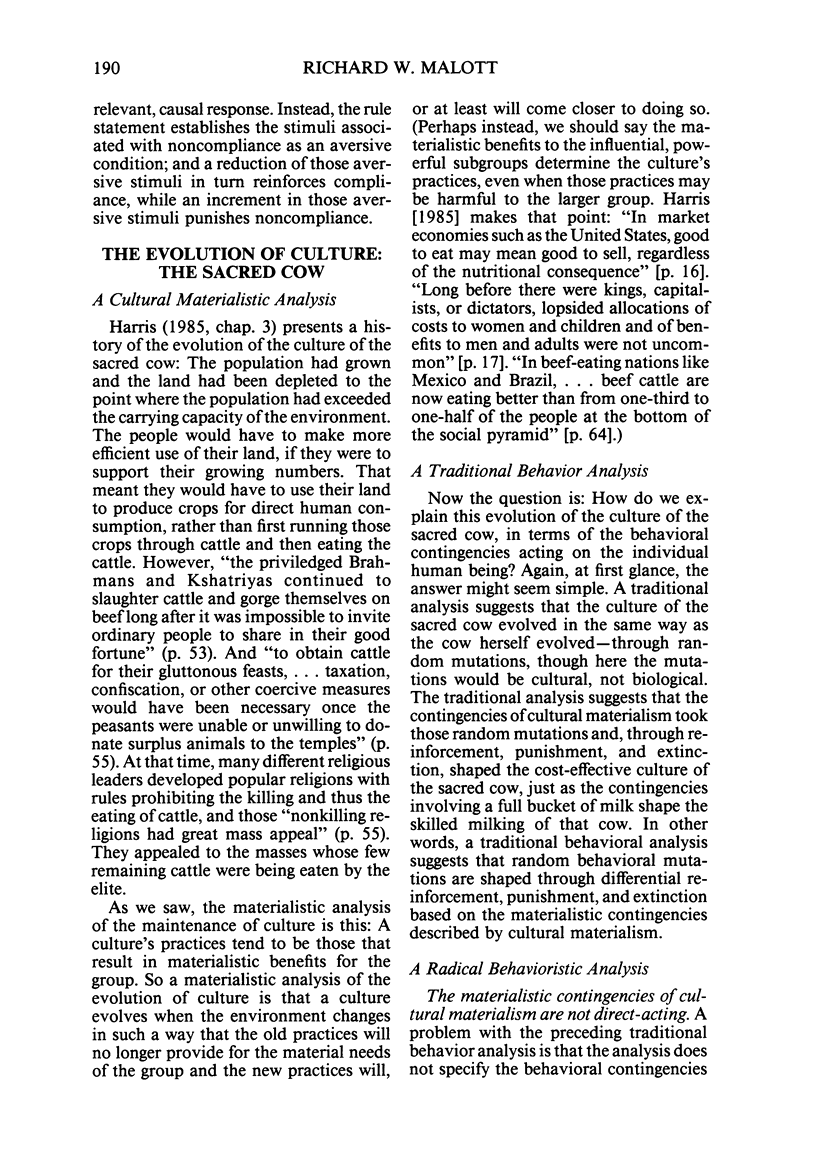
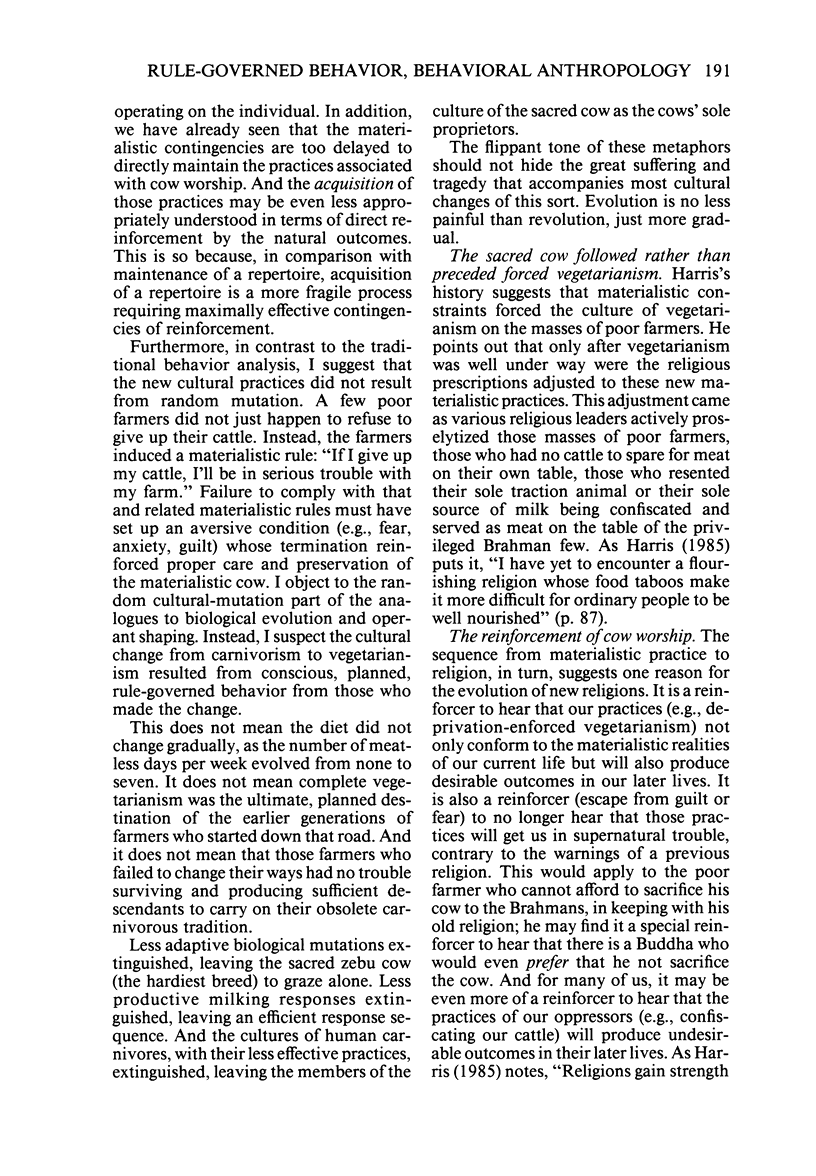
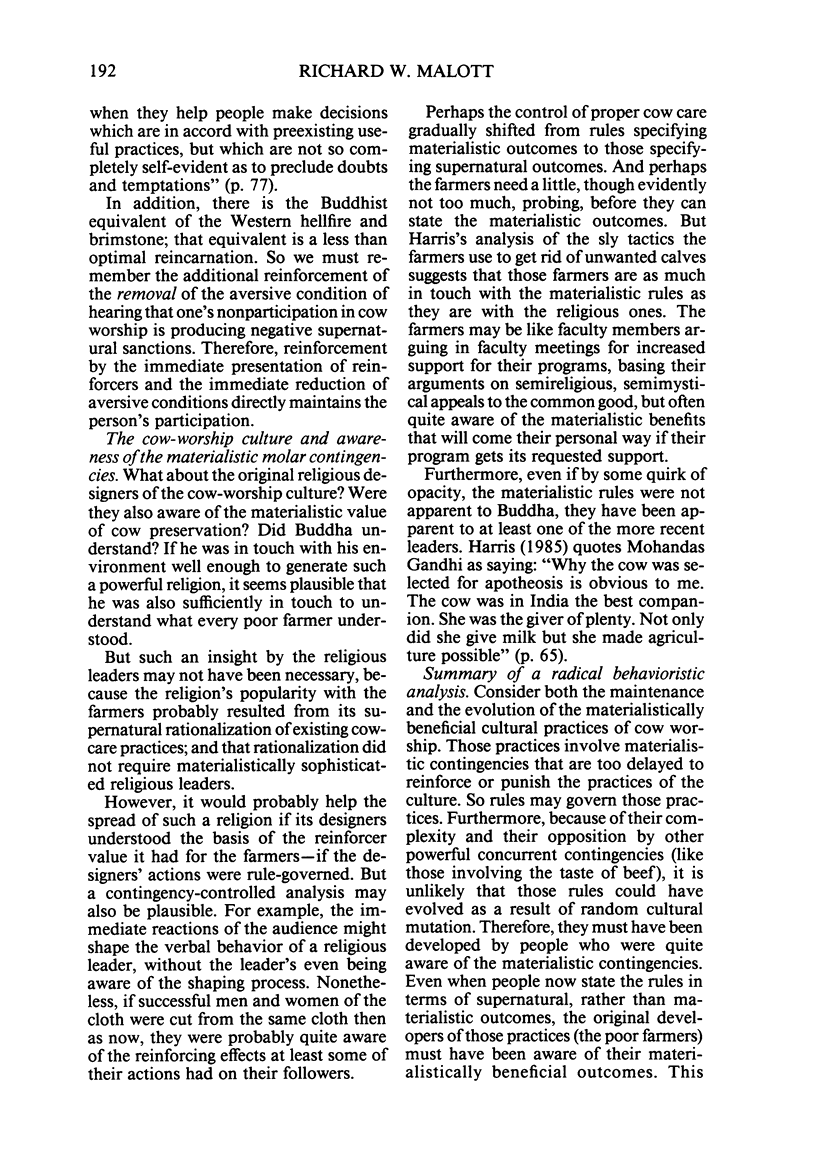
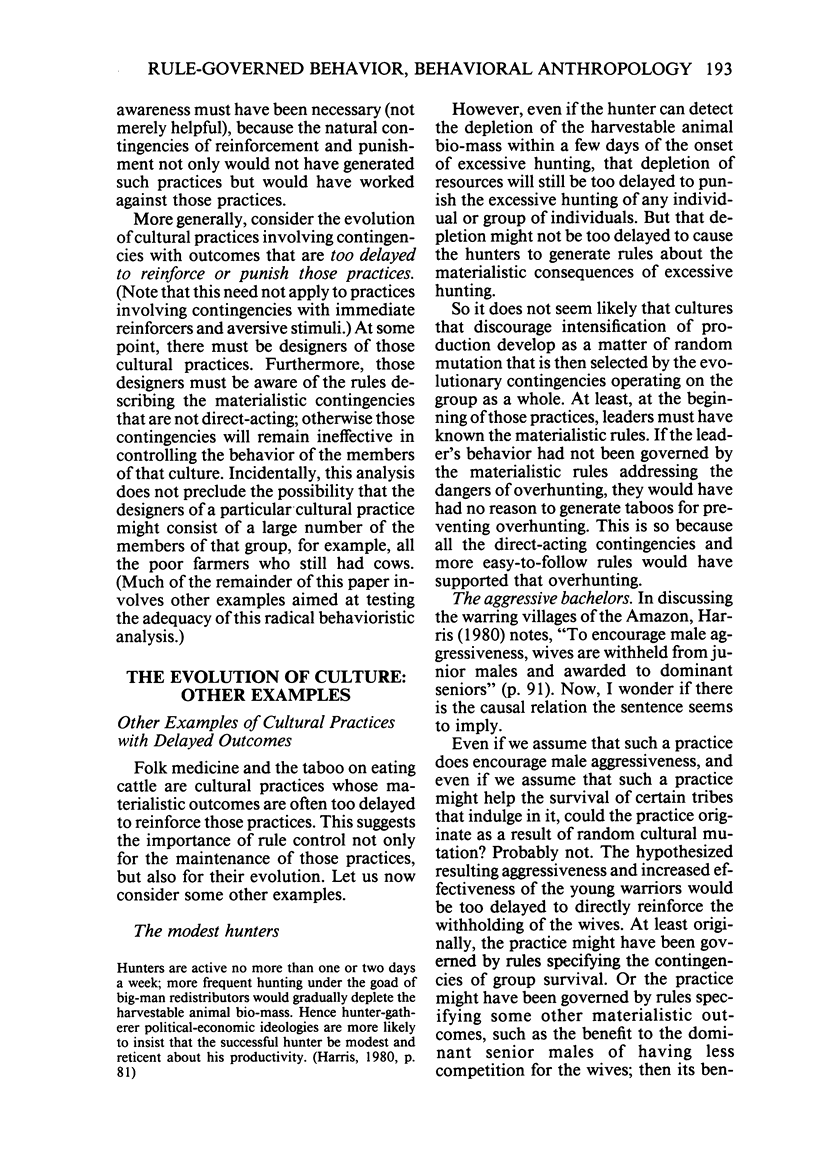
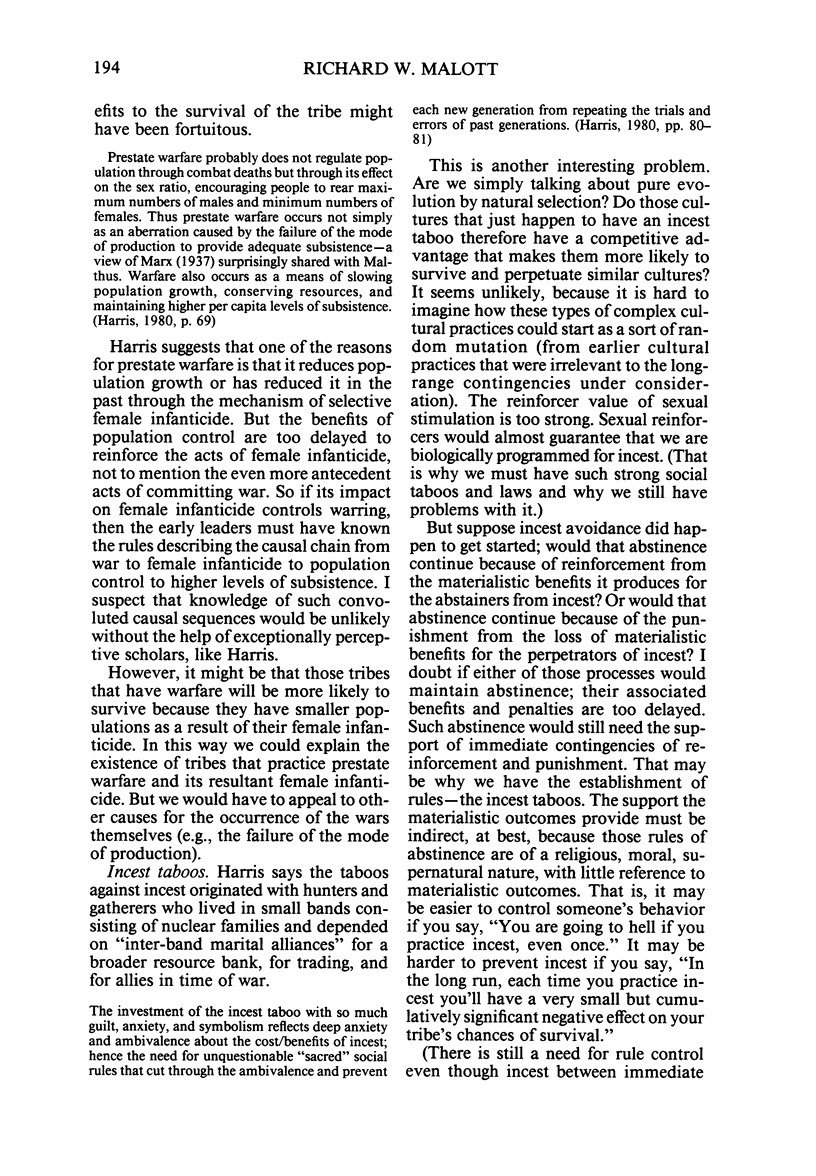
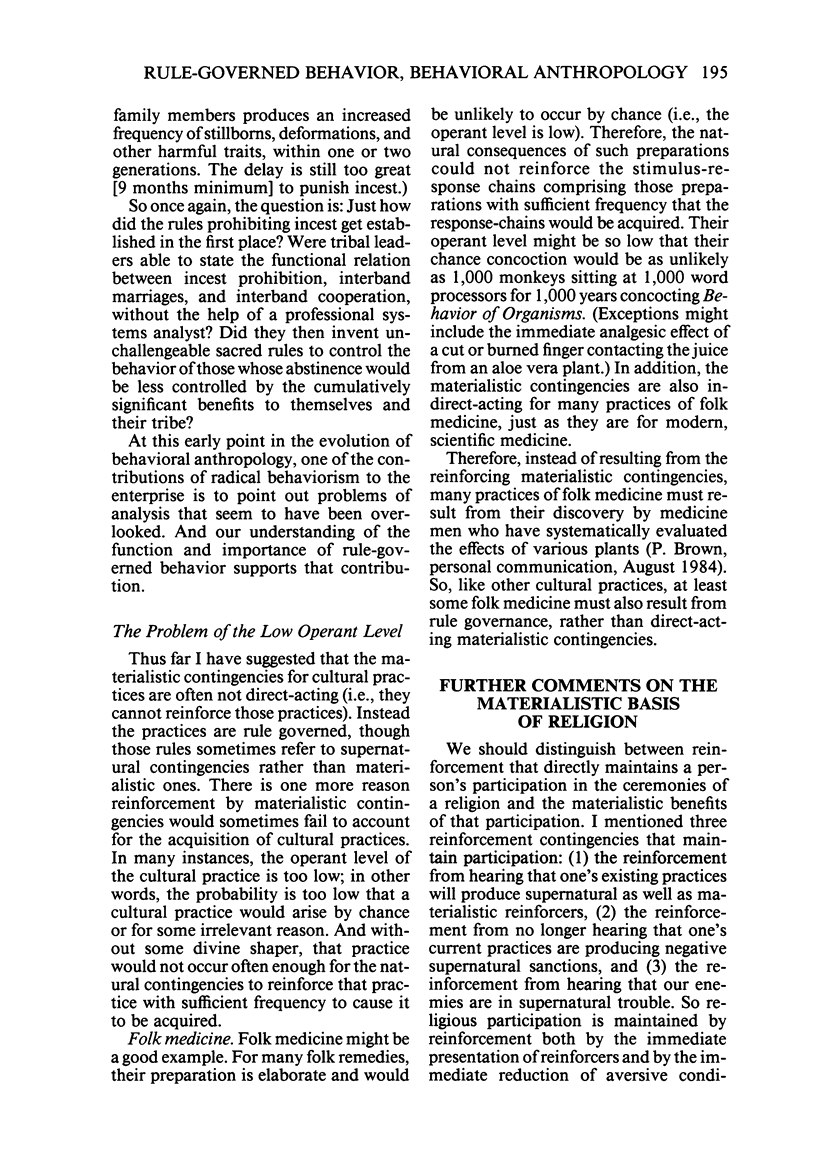
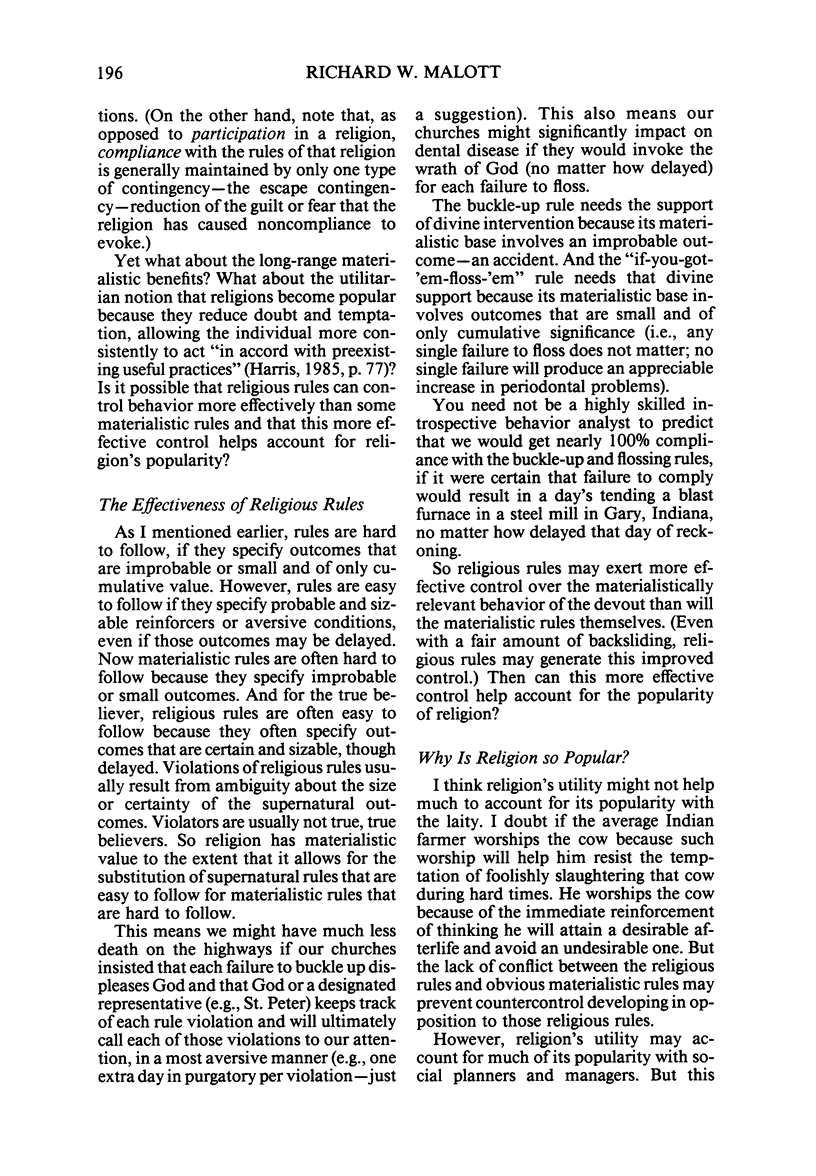
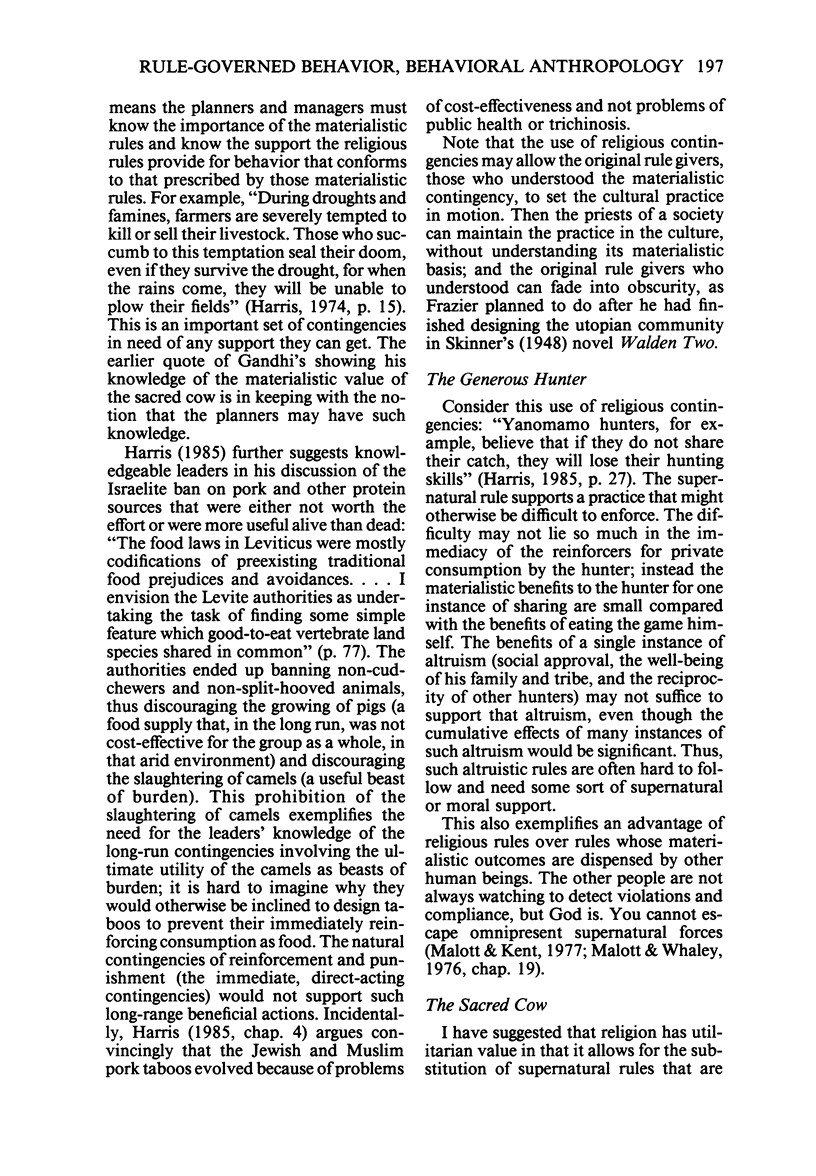
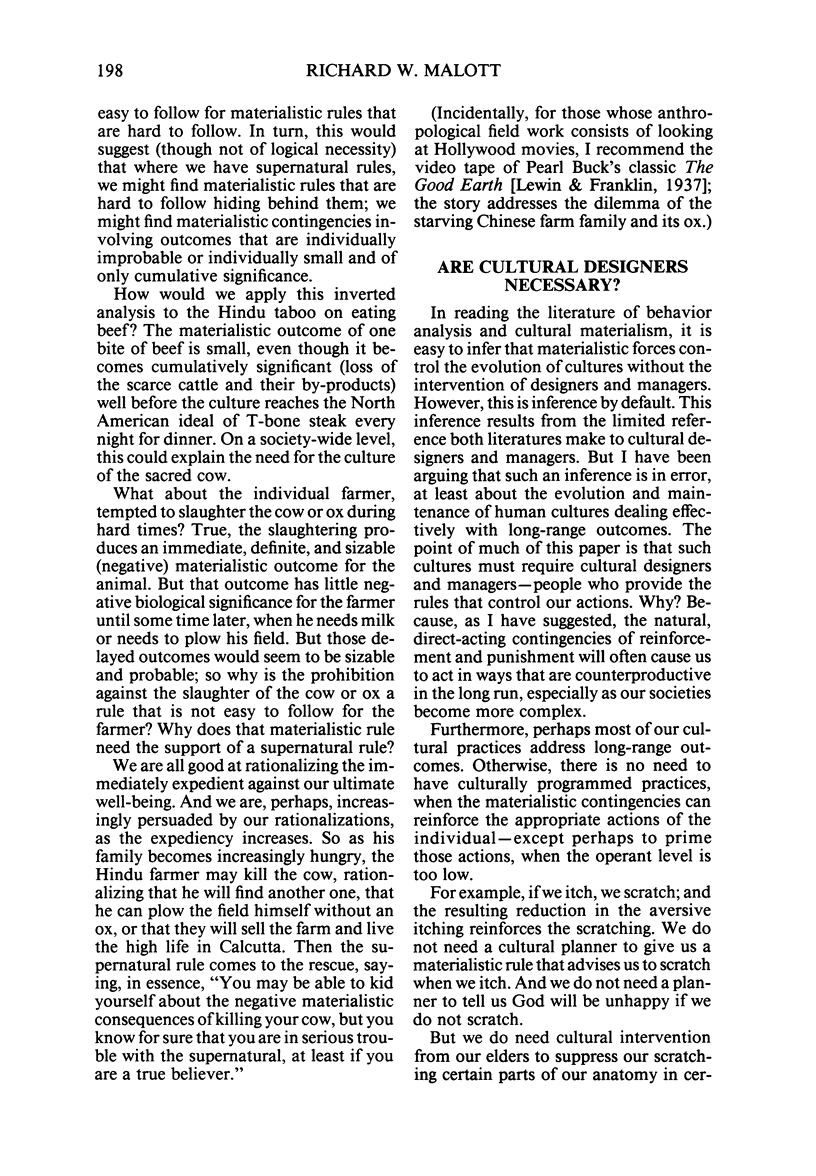
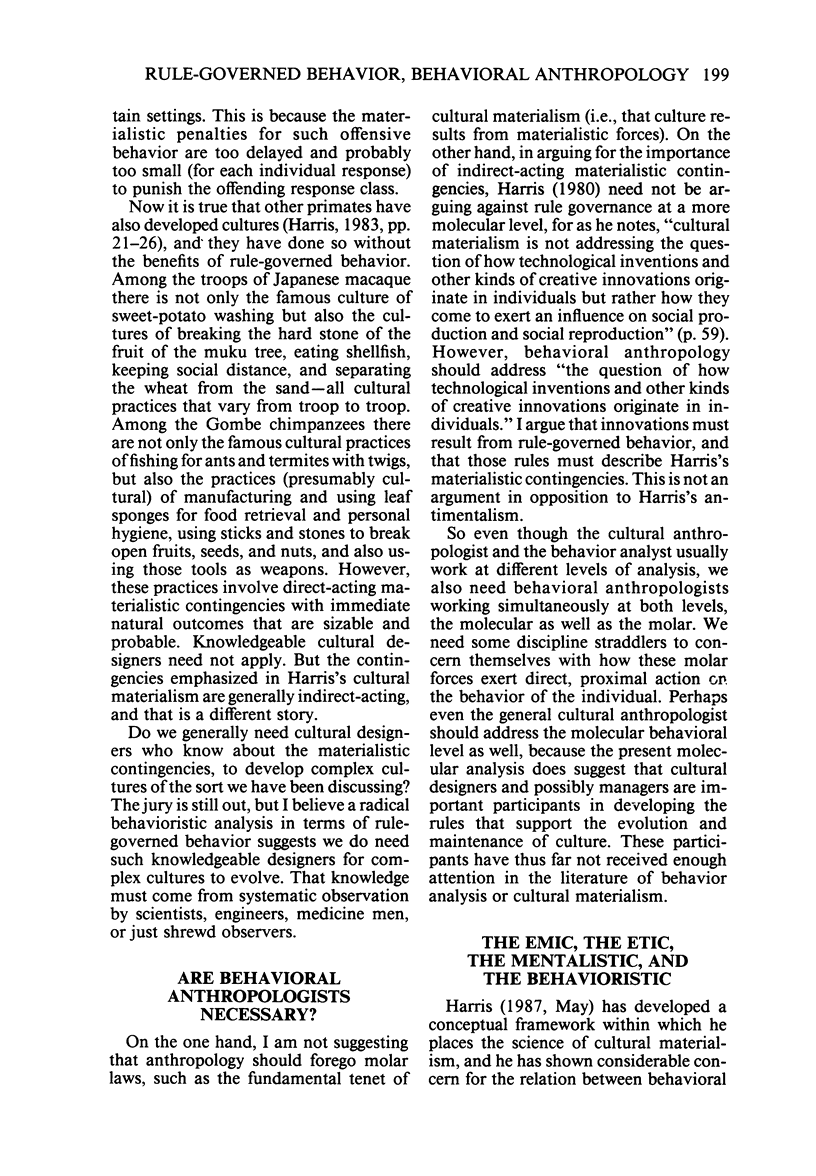
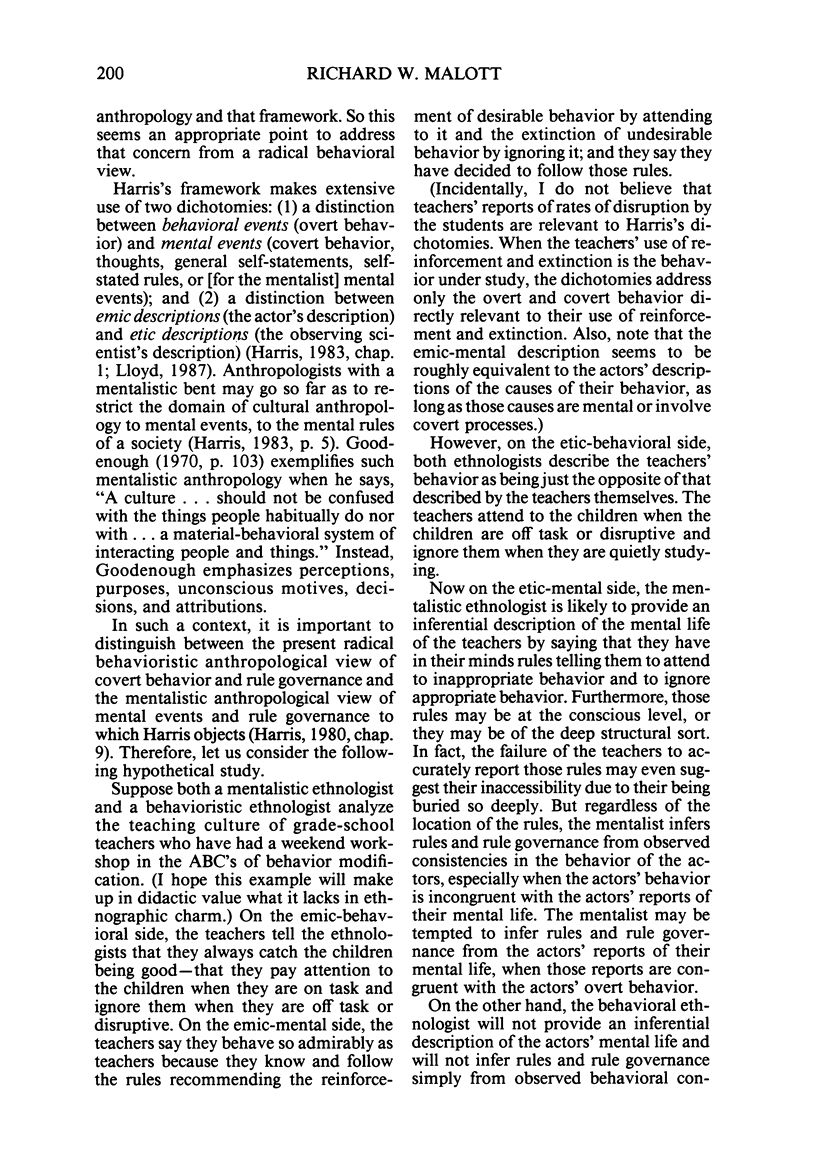
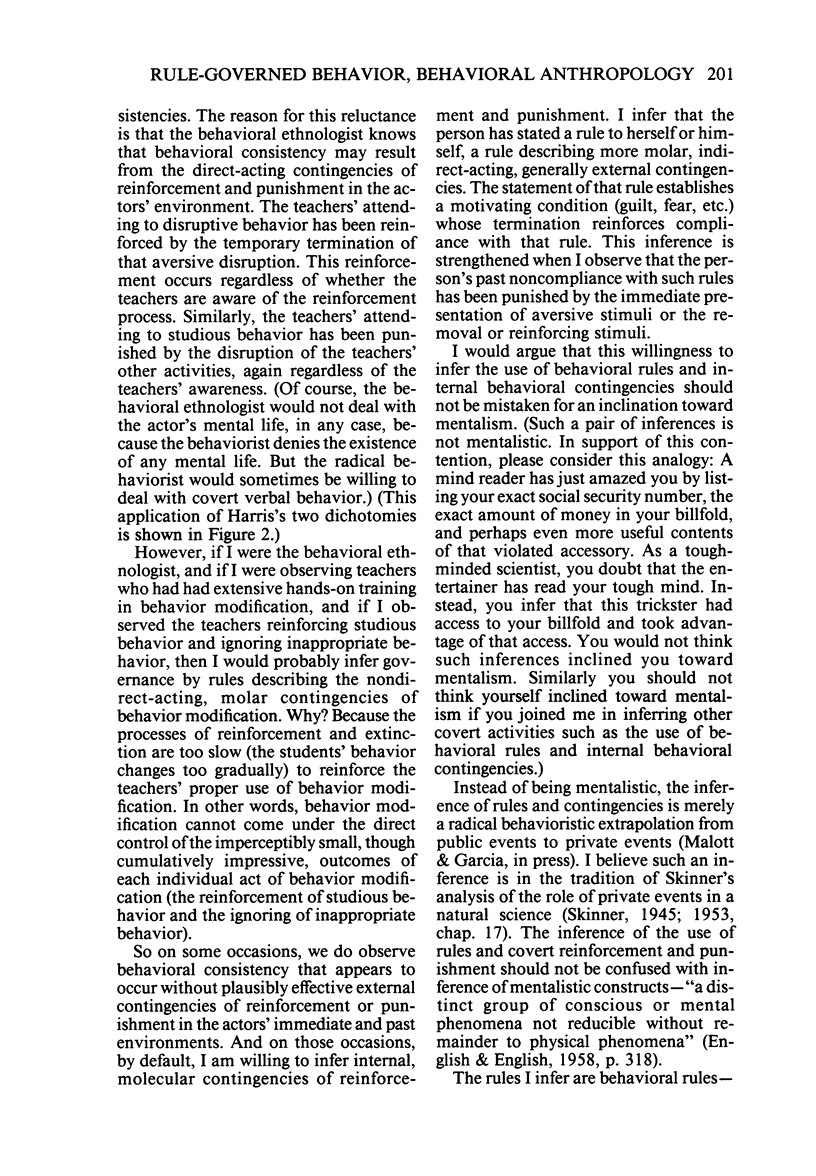
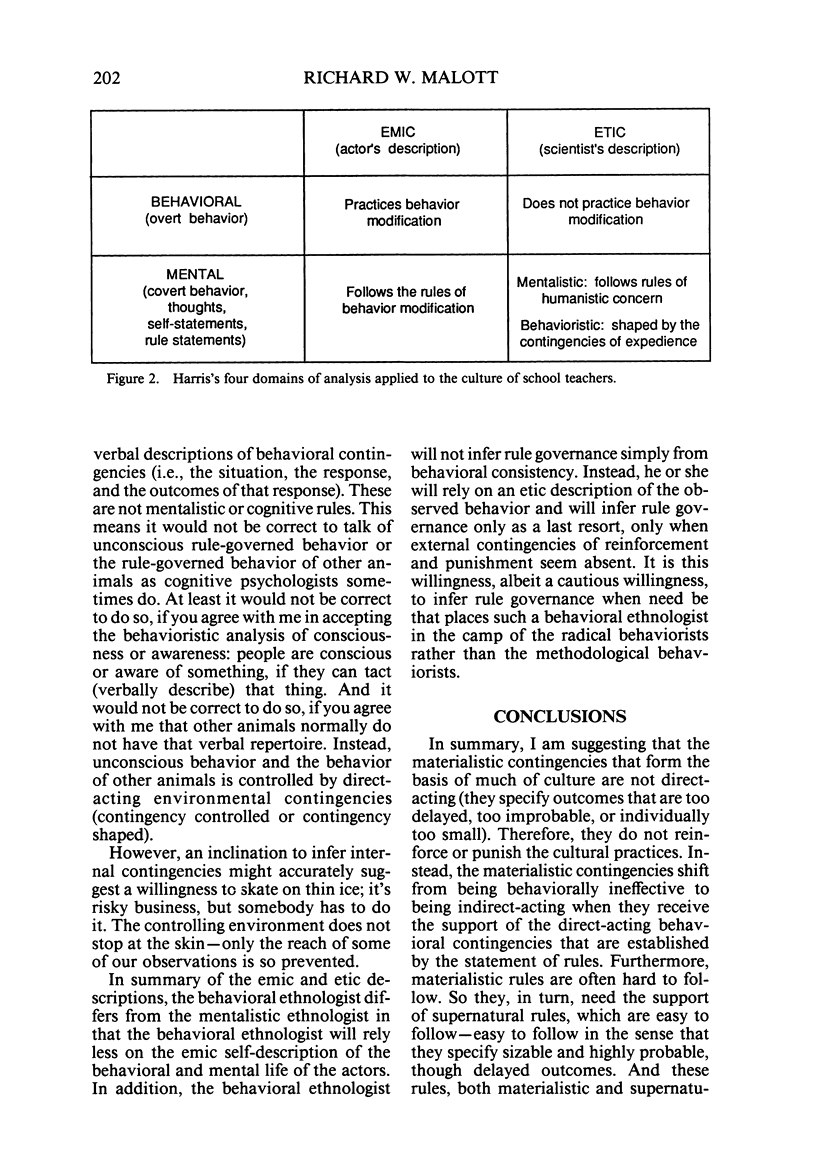
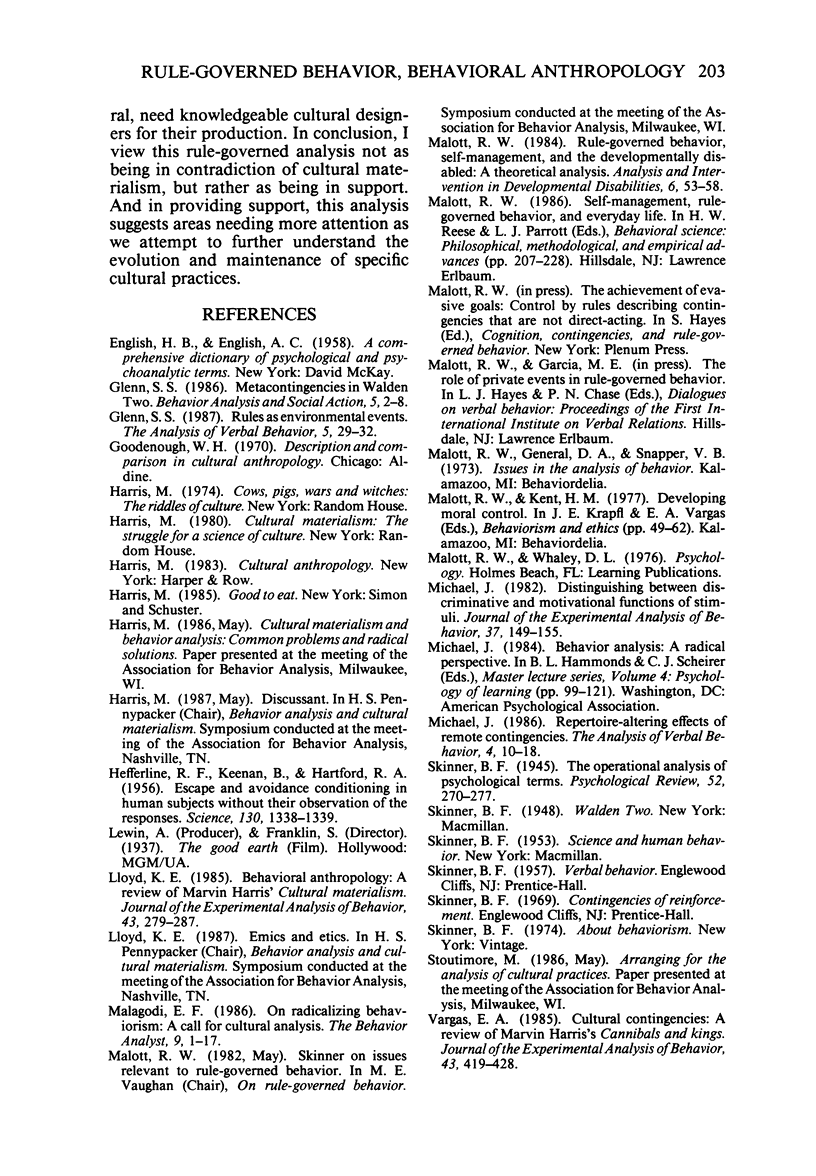
Selected References
These references are in PubMed. This may not be the complete list of references from this article.
- HEFFERLINE R. F., KEENAN B., HARFORD R. A. Escape and avoidance conditioning in human subjects without their observation of the response. Science. 1959 Nov 13;130(3385):1338–1339. doi: 10.1126/science.130.3385.1338. [DOI] [PubMed] [Google Scholar]
- Malagodi E. F. On radicalizing behaviorism: A call for cultural analysis. Behav Anal. 1986 Spring;9(1):1–17. doi: 10.1007/BF03391925. [DOI] [PMC free article] [PubMed] [Google Scholar]
- Michael J. Distinguishing between discriminative and motivational functions of stimuli. J Exp Anal Behav. 1982 Jan;37(1):149–155. doi: 10.1901/jeab.1982.37-149. [DOI] [PMC free article] [PubMed] [Google Scholar]
- doi: 10.1901/jeab.1985.43-279. [DOI] [PMC free article] [Google Scholar]
- doi: 10.1901/jeab.1985.43-419. [DOI] [PMC free article] [Google Scholar]


